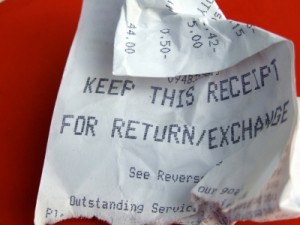With only a week to go before Christmas and a mere two weeks left of 2014, holiday mania is just about over for retailers, consumers and business writers alike.
But there’s still a little octane left in the sleigh, and plenty of interesting and informative story angles left if you’re in the mood for holiday features.
Here are a few:
Dec. 24 marathon.
Kohl’s will stay open 24 hours a day from Dec. 20 through 6 p.m. on Christmas Eve; Toys R Us will be running a similar promo – which other merchants will be pulling such a marathon stunt to engage shoppers in a bit of last-minute adrenaline? Chain stores are no surprise but if you can find any local retailers making the big final push, and parse the business pros and cons of so doing, it could be an illuminating and colorful story.
Workplace.
For all the brouhaha over stores staying open last month on Thanksgiving, you don’t hear much about the employees at the above-mentioned outlets who must work Dec. 25.
Retail outlets like convenience stores and gas stations will be open, as will many supermarkets, at least for a curtailed day. What about florist shops, drug stores and other last-minute gift venues? The 7-Eleven chain, which says it recently added fine wines to its convenience-store line-up, typically keeps its ubiquitous stores open on Christmas Day. McDonald’s last year was encouraging franchisors to keep stores open Christmas Day; might be worth a check there and at other fast food operators.
Then of course there are essential services like hospitals, public safety agencies and utility companies, not to mention media outlets. What is staffing like at these entities? Who gets the pleasure of managing schedules? Is the holiday pay differential prevalent in this be-glad-you-have-a-job era or are Dec. 25 workers on straight time (and how does that differ for union v. non-union groups.
What’s the status of corporate largesse, like holiday bonuses, staff parties and even budgets for client gifts; are fewer sales reps sending poinsettias and honey hams to customers these days – and what’s the ripple effect on gift suppliers?
Perhaps you could take a look at small businesses that respond to emergencies on holidays, like plumbers, heating/cooling contractors and the like. Here’s a Maryland plumber who’s boasting about Christmas-Day kudos from a happy client, on the company blog.
Emergency veterinary hospitals often are staffed on Christmas Day; hanging around one for a few hours could yield a different sort of tick-tock; the food and ornaments of the holidays can be hazardous to animal health. (Conversely, if all of the emergency pet hospitals in your area are closed on holidays, what’s a sick pet to do? Good consumer piece.)
Other workplace issues are coming to a head in the next few days; here’s a CBS News piece from last year that asks “Should parents get time off preference for holidays?” It’s a heated topic; check in with local employers about that and other seasonal policies.
Returns and exchanges.
Dec. 26 is Boxing Day in the U.K. — a traditional time to take packages around to friends and, in the olden days, servants and the poor. In the United States, it’s boxed-up goods getting rushed back to the store for exchange and credit. You might want to write about how stores are gearing up for that mad rush; sites like Kiplinger’s are reporting on various stores’ refund policies, for example.
But perhaps a behind-the-scenes look at what returns do to the merchants that accept them (and a sidebar noting that they don’t have to might be informative; few states require retail return policies except when items are defective; check with your state’s attorney general for rules) might be quite enlightening from a business standpoint. The National Retail Federation is just out with a report saying return fraud will cost stores $3.4 billion this holiday season, and nearly $9 billion for the full year. That includes the return of stolen goods, the return of used goods and people attempting to return one merchant’s wares to another store’s customer service counter. (I saw a woman insisting to a Kohl’s manager recently that the old flannel suit with a Sears label was purchased at Kohl’s! Talk about gumption!)
Another interesting angle: What happens to holiday rejects? I assumed they mostly went back on the shelves, but no necessarily, some is sent back to the vendor, some is discarded (worn clothing, for example) and some is bundled for liquidation or resale. Closeout buyers can bid on pallets of merchandise as this GENCO company site indicates; why not look into the little-reported on but pervasive world of merchandise liquidation and resale? (Stores like Big Lots, Tuesday Morning, the TJX companies, etc. specialize in secondary marketing of these overstocks, for example.)
New Year’s Eve.
In addition to business angles from restaurants, caterers, grocery stores (those steak and seafood sales crop up as loss leaders this week, along with discount sparkling wine) and the like, be sure to take a look at business for bars, hotels, casinos, limo & party bus companies and even designated driver services. The National Directory of Designated Driver Services may point you to some interesting small businesses.











